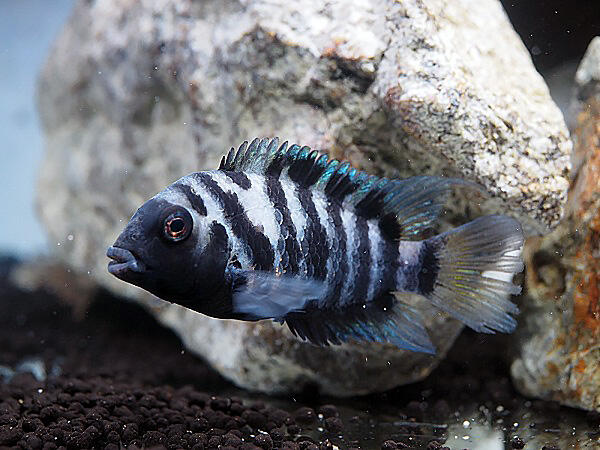A research group led by researcher Shun Satoh (Graduate University for Advanced Studies) and Professor Masanori Kohda, Graduate School of Science, Osaka City University, has found that when male Convict Cichlid fish (a species raising offspring in couples native to Central and South America) are faced with a choice between the antisocial option of receiving food for themselves alone and the prosocial option of receiving food for themselves and their partner, they actively chose the prosocial option. This suggests the possibility that the altruism of humans may have evolved from a fish ancestor. The findings were published in the March 19 edition of the international science journal Nature Communications.

Humans are known to be caring (prosocial), a trait found through experiments to be shared with apes and other primates. Some fish species were known to behave in social ways, such as raising offspring in couples like humans, but this is the first time they have been found to be prosocial.
Therefore, the research group applied prosocial choice tasks used on primates to investigate the sociability on fish. They created a series of experiments using Convict Cichlid fish, which mate for life.
In the study, a male fish was presented with the "antisocial option of receiving food for themselves alone" and the "option of receiving food for themselves and another fish." The other fish presented were a partner with whom the male fish had experience in raising children, a rival male, and a fish the male fish had never met before (an unknown female), and the different choices made according to each fish were recorded. In the experiments, the other fish were presented to the experimental male fish in a separate tank. The study was designed to create a situation where the experimental male would choose between two feeding compartments in his tank, one where only he would receive the food and the other where both he and the other fish would receive the food. The presentation tank position was adjusted throughout the experiment, and the male could only select one of the compartments.
As a result, when presented with their female partner, the male fish steadily increased their prosocial selections, with almost all choices being prosocial by the 10th day of the experiment. On the other hand, when a rival male fish was presented, the experimental male actively selected the antisocial option and when an unknown female was presented, the male actively selected the prosocial option, though less so than for their partner female.
When presented with an unknown female, but with his female partner placed in a tank where he could see her, the male would make the antisocial choice for the unknown female.
Based on these findings, it is likely that the experimental male clearly distinguishes the presented fish and makes choices according to the situation. The team says there is a chance that other fish species too may build delicate social relationships, based on the same kind of prosociality.
The study will continue, with the next experiment to focus on female fish.
This article has been translated by JST with permission from The Science News Ltd.(https://sci-news.co.jp/). Unauthorized reproduction of the article and photographs is prohibited.




